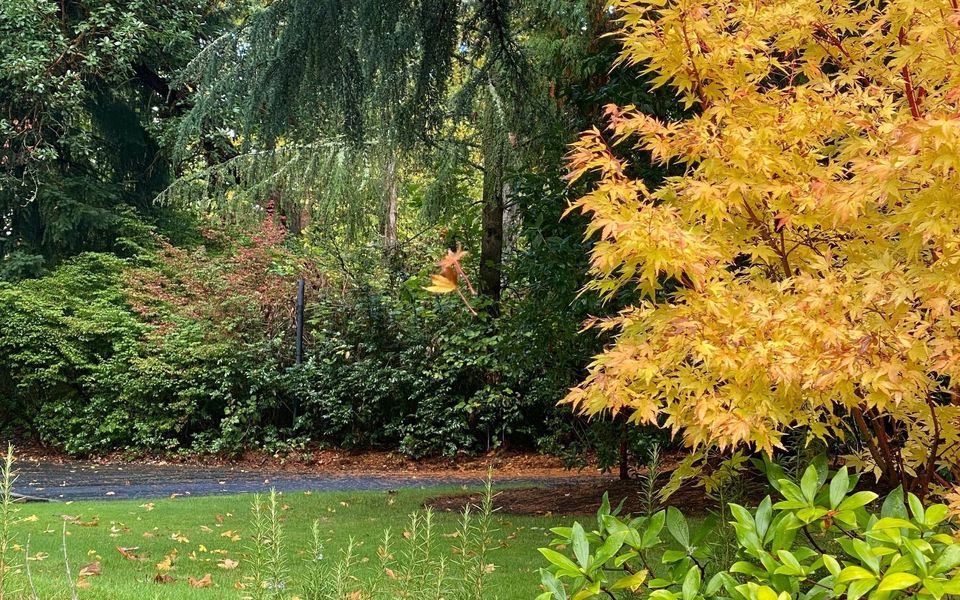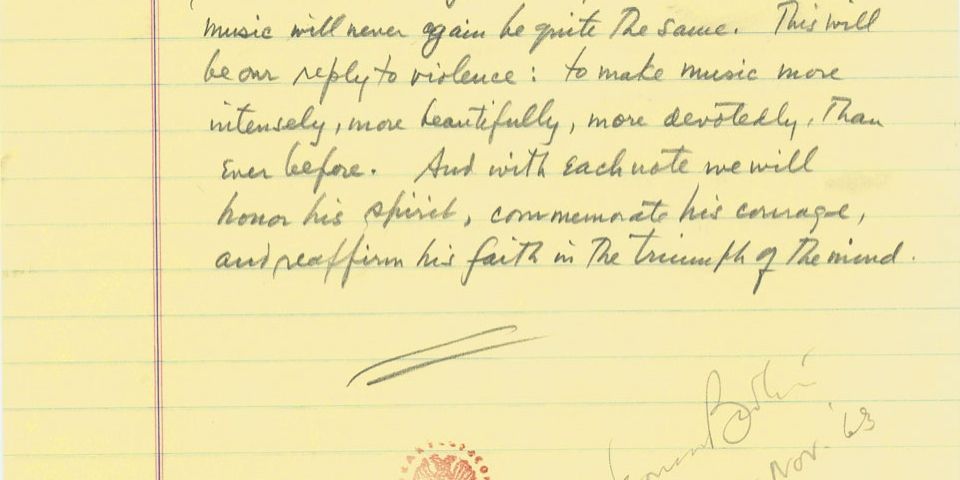Pace, mio Dio / Peace, my God

"This will be our reply to violence: to make music more intensely, more beautifully, more devotedly than ever before." Leonard Bernstein

I've read this quote many times online but was never aware of the context of where and why it was said. It's a declaration in Bernstein's prepared remarks at a memorial service for President John F. Kennedy.
And while his remarks address a different kind of loss and grief, they speak of the same hope the world needs right now, today:
My dear friends:
Last night the New York Philharmonic and I performed Mahler’s Second Symphony-- The Resurrection-- in tribute to the memory of our beloved late President. There were those who asked: Why the Resurrection Symphony, with its visionary concept of hope and triumph over worldly pain, instead of a Requiem, or the customary Funeral March from the Eroica? Why indeed? We played the Mahler symphony not only in terms of resurrection for the soul of one we love, but also for the resurrection of hope in all of us who mourn him. In spite of our shock, our shame, and our despair at the diminution of man that follows from this death, we must somehow gather strength for the increase of man, strength to go on striving for those goals he cherished. In mourning him, we must be worthy of him.
I know of no musician in this country who did not love John F. Kennedy. American artists have for three years looked to the White House with unaccustomed confidence and warmth. We loved him for the honor in which he held art, in which he held every creative impulse of the human mind, whether it was expressed in words, or notes, or paints, or mathematical symbols. This reverence for the life of the mind was apparent even in his last speech, which he was to have made a few hours after his death. He was to have said: “America’s leadership must be guided by learning and reason.” Learning and reason: precisely the two elements that were necessarily missing from the mind of anyone who could have fired that impossible bullet. Learning and reason: the two basic precepts of all Judaistic tradition, the twin sources from which every Jewish mind from Abraham and Moses to Freud and Einstein has drawn its living power. Learning and Reason: the motto we here tonight must continue to uphold with redoubled tenacity, and must continue, at any price, to make the basis of all our actions.
It is obvious that the grievous nature of our loss is immensely aggravated by the element of violence involved in it. And where does this violence spring from? From ignorance and hatred-- the exact antonyms of Learning and Reason. Learning and Reason: those two words of John Kennedy’s were not uttered in time to save his own life; but every man can pick them up where they fell, and make them part of himself, the seed of that rational intelligence without which our world can no longer survive. This must be the mission of every man of goodwill: to insist, unflaggingly, at risk of becoming a repetitive bore, but to insist on the achievement of a world in which the mind will have triumphed over violence.
We musicians, like everyone else, are numb with sorrow at this murder, and with rage at the senselessness of the crime. But this sorrow and rage will not inflame us to seek retribution; rather they will inflame our art. Our music will never again be quite the same. This will be our reply to violence: to make music more intensely, more beautifully, more devotedly than ever before. And with each note we will honor the spirit of John Kennedy, commemorate his courage, and reaffirm his faith in the Triumph of the Mind.
I will admit that I have been woefully ignorant of the past and present events that contributed to the generations-long, Israeli-Palestinian conflict. I know both sides have suffered, horribly. I pray, both for the Israeli people, including some of my coworkers directly impacted by these horrendous attacks, and for the Palestinian civilians killed in counterattacks. It's hard to imagine any of it... all of it.
Above all, we must continue to see the humanity in each other.
I believe we must always hold space for the possibility of peace.
In the meantime, for my own part, I plan to spend more time on the learning bit Bernstein mentioned.